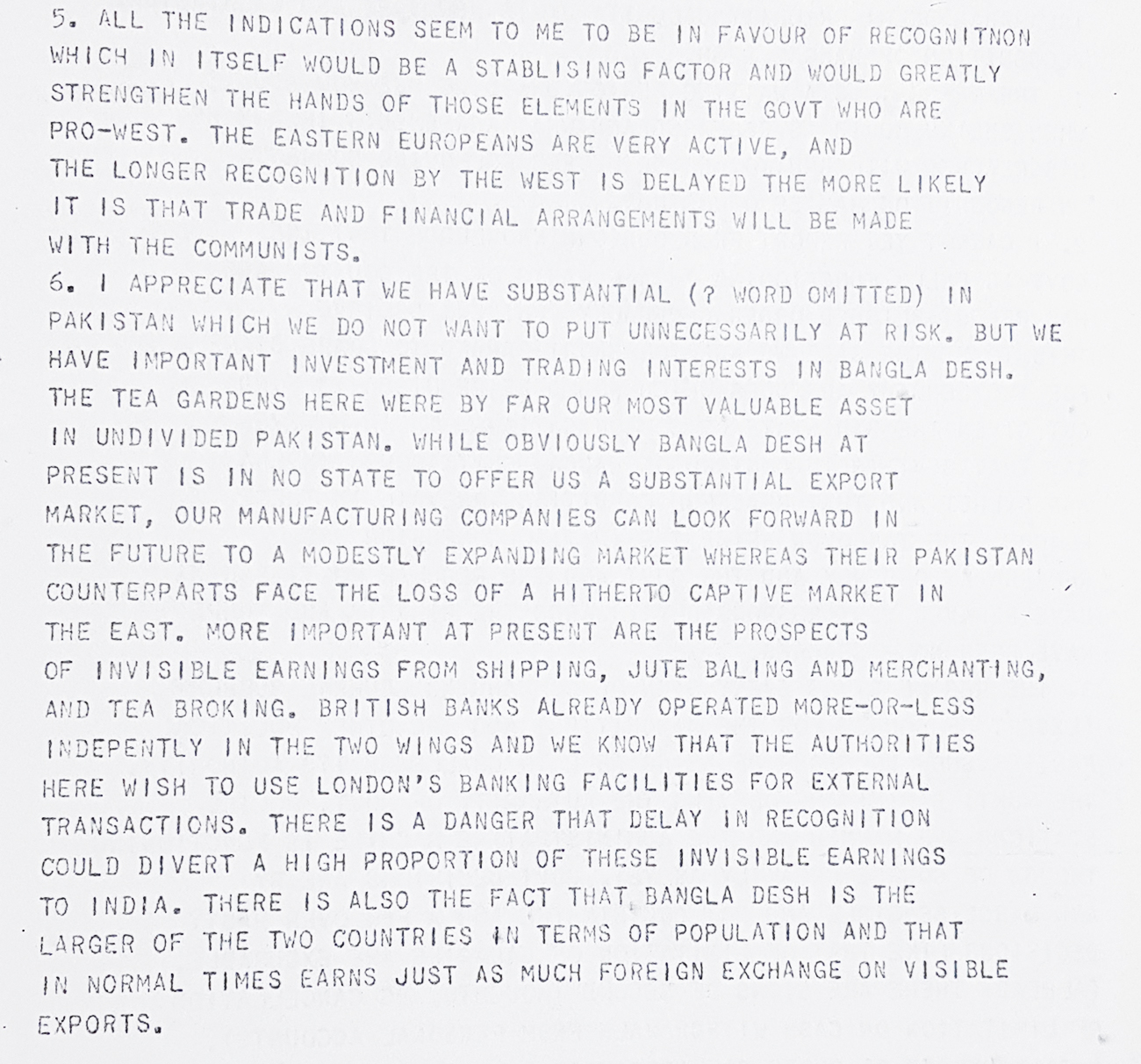
Britain recognised Bangladesh as an independent country on 4 February 1972. There was a lot of internal discussion before this date on the advantages and disadvantages that might come with recognition. Britain wanted to maintain good relationships with both Bangladesh and Pakistan.
This telegram shows British political and financial interests in the 1971 conflict.
Telegram on the recognition of Bangladesh for distribution within the Foreign & Commonwealth Office. 6 January 1972. Catalogue ref: FCO 37/1019
Transcript
5. All the indications seem to me to be in favour of recognition of the independence of Bangladesh] which in itself would be a stabilising factor [calm tensions] and would greatly strengthen the hands of those elements in the govt [government] who are pro-West. The Eastern Europeans are very active, and the longer recognition by the West is delayed the more likely it is that trade and financial arrangements will be made with the Communists. [Soviet Union]
6. I appreciate that we have substantial [important] (? word omitted- interests?) in Pakistan which we do not want to put unnecessarily at risk. But we have important investment [money interests] and trading interests in Bangla Desh. The tea gardens here were by far our most valuable asset [possession] in undivided Pakistan. While obviously Bangla Desh at present is in no state to offer us a substantial export market, our manufacturing companies can look forward in the future to a modestly expanding market whereas their Pakistan counterparts face the loss of a hitherto [until now] captive market in the East. More important at present are the prospects of invisible earnings from shipping, jute baling and merchanting [selling], and tea broking. British banks already operated more-or-less independently in the two wings and we know that the authorities here wish to use London’s banking facilities for external transactions [business]. There is a danger that delay in recognition could divert [redirect] a high proportion of these invisible earnings to India. There is also the fact that Bangla Desh is the larger of the two countries in terms of population and that in normal times earns just as much foreign exchange on visible exports.
Note: Jute is a fibre that can be spun into thread.
- What type of source do you think this is? Who wrote it?
- Give three reasons for why you think Britain would want to recognise the independence of Bangladesh.
- What does this source reveal about Britain’s attitude to the conflict between Pakistan and Bangladesh?
- Why do you think Britain has investments in Pakistan and Bangladesh?
- A word is missing from the source, can you suggest what it might be?
- Why is Britain worried about Eastern European and Communist influence in Bangladesh? (Hint: look at the Cold War.)
